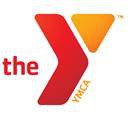By Edmund L. Andrews
 The 2016 Global Social Venture Competition is now in the final stretch. After reviewing new business ideas from almost 500 start-up social ventures in 50 nations, judging panels from nine regional partners across the globe have selected 17 social venture teams that will travel to Bangkok, Thailand, for the final round of competition on April 1 and 2. They will be competing for $50,000 in prize money.
The 2016 Global Social Venture Competition is now in the final stretch. After reviewing new business ideas from almost 500 start-up social ventures in 50 nations, judging panels from nine regional partners across the globe have selected 17 social venture teams that will travel to Bangkok, Thailand, for the final round of competition on April 1 and 2. They will be competing for $50,000 in prize money.
This is the first time in the competition’s 17-year history that the Global Finals will be held in Asia.
Among the many innovations: an e-reader for the blind that produces pages of text in braille; a library-in-a-box for students with limited access to the Internet; a low-cost system to remove pathogens from sewage water; a networking platform that allows tiny neighborhood shops to aggregate food purchases and lower their costs.
The top-performing nations this year, in terms of first-round entries, were Italy, China, the United States, France and India. Morocco and Nigeria put in strong showings as well.
All told, 178 universities were involved, and 13 countries will be represented at the Global Finals, including first-time appearances from Cameroon, Colombia and Turkey.
Five of the finalists have focused on education:
Dost, founded by UC Berkeley graduate students Sneha Sheth (Haas MBA ’16) and Sindhuja Jeyabal (I-School ‘16), has developed a mobile platform to help mothers in impoverished economies break the cycle of illiteracy. The Dost platform sends mothers pre-recorded voice messages with tips on learning activities and child development. It also collects data on the users’ demographic profiles and goals in order to customize the content. Continue reading


 California Shakespeare Theater (Cal Shakes)
California Shakespeare Theater (Cal Shakes) Episcopal Community Services (ECS) of San Francisco
Episcopal Community Services (ECS) of San Francisco The
The  Destiny Arts Center
Destiny Arts Center

